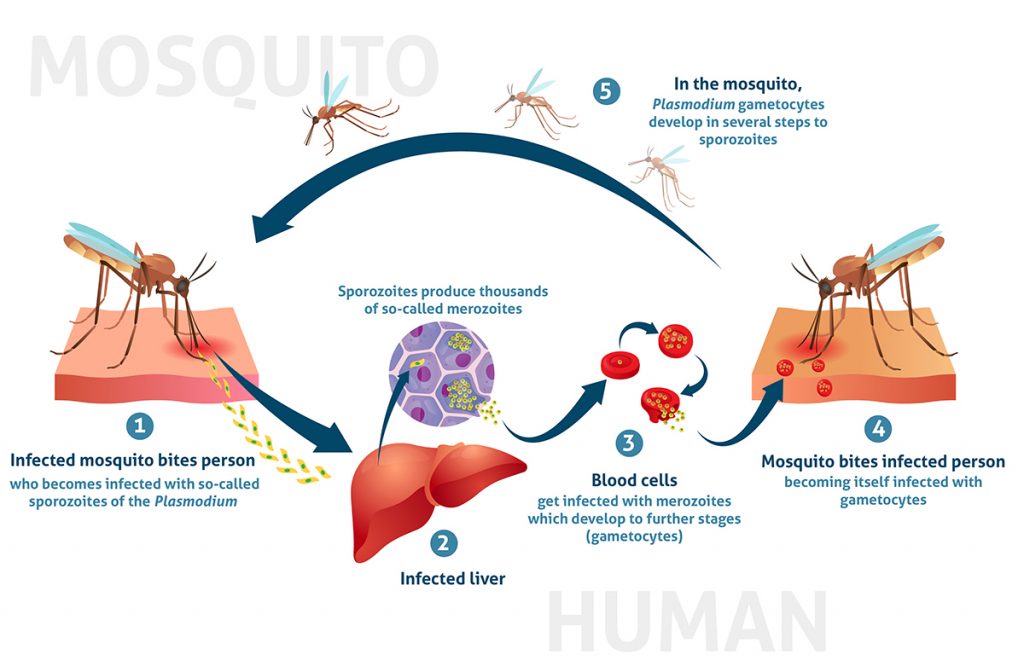
Malaria is a life-threatening disease. It’s typically transmitted through the bite of an infected Anopheles mosquito. Infected mosquitoes carry the Plasmodium parasite. When this mosquito bites you, the parasite is released into your bloodstream.
Once the parasites are inside your body, they travel to the liver, where they mature. After several days, the mature parasites enter the bloodstream and begin to infect red blood cells.
Within 48 to 72 hours, the parasites inside the red blood cells multiply, causing the infected cells to burst open.
The parasites continue to infect red blood cells, resulting in symptoms that occur in cycles that last two to three days at a time.
The symptoms of malaria typically develop within 10 days to 4 weeks following the infection. In some cases, symptoms may not develop for several months. Some malarial parasites can enter the body but will be dormant for long periods of time.
Common symptoms of malaria include:
- shaking chills that can range from moderate to severe
- high fever
- profuse sweating
- headache
- nausea
- vomiting
- abdominal pain
- diarrhea
- anemia
- muscle pain
- convulsions
- coma
- bloody stools
Your doctor will be able to diagnose malaria. During your appointment, your doctor will review your health history, including any recent travel to tropical climates. A physical exam will also be performed.
Your doctor will be able to determine if you have an enlarged spleen or liver. If you have symptoms of malaria, your doctor may order additional blood tests to confirm your diagnosis.
These tests will show:
- whether you have malaria
- what type of malaria you have
- if your infection is caused by a parasite that’s resistant to certain types of drugs
- if the disease has caused anemia
- if the disease has affected your vital organs




